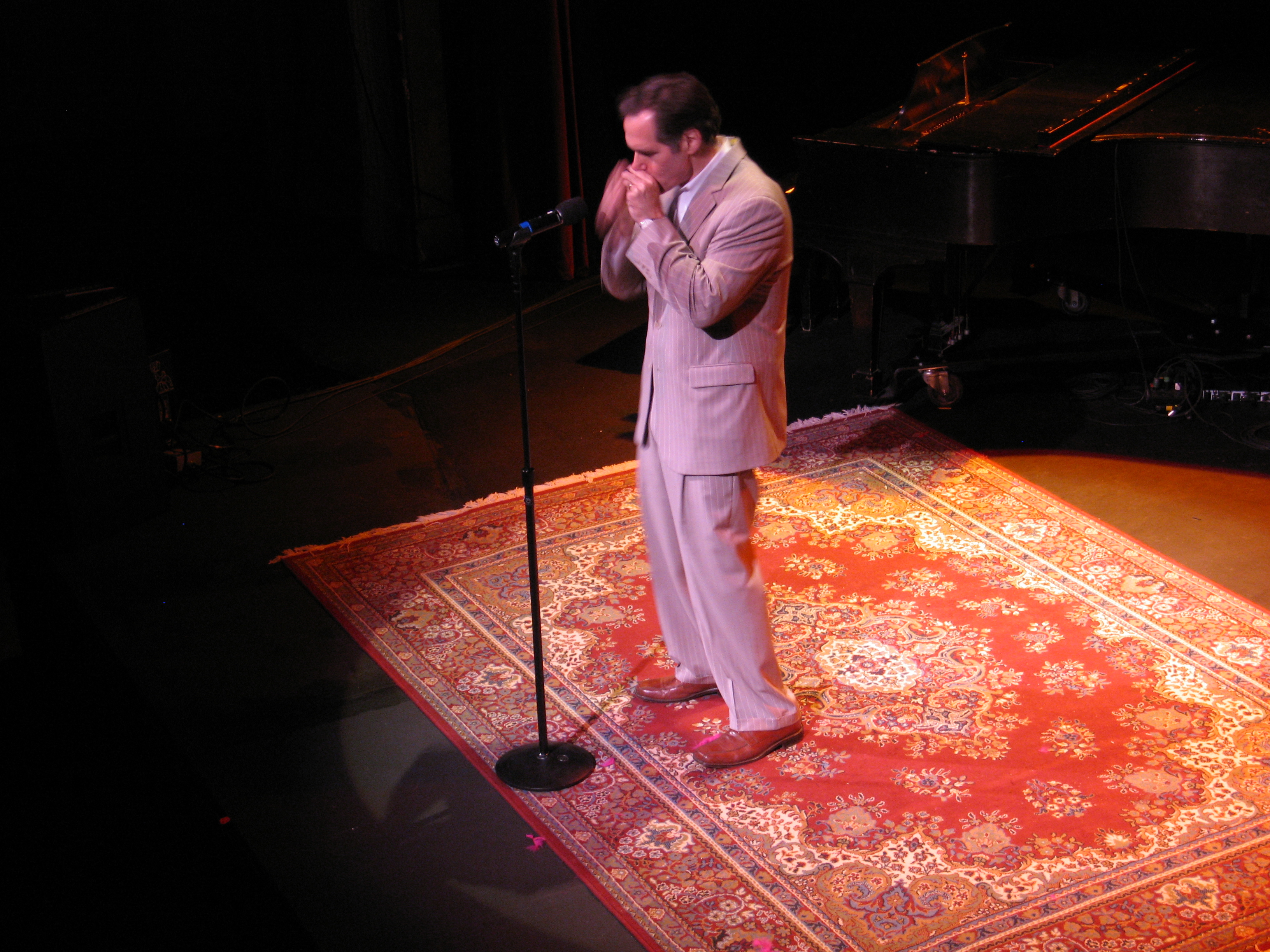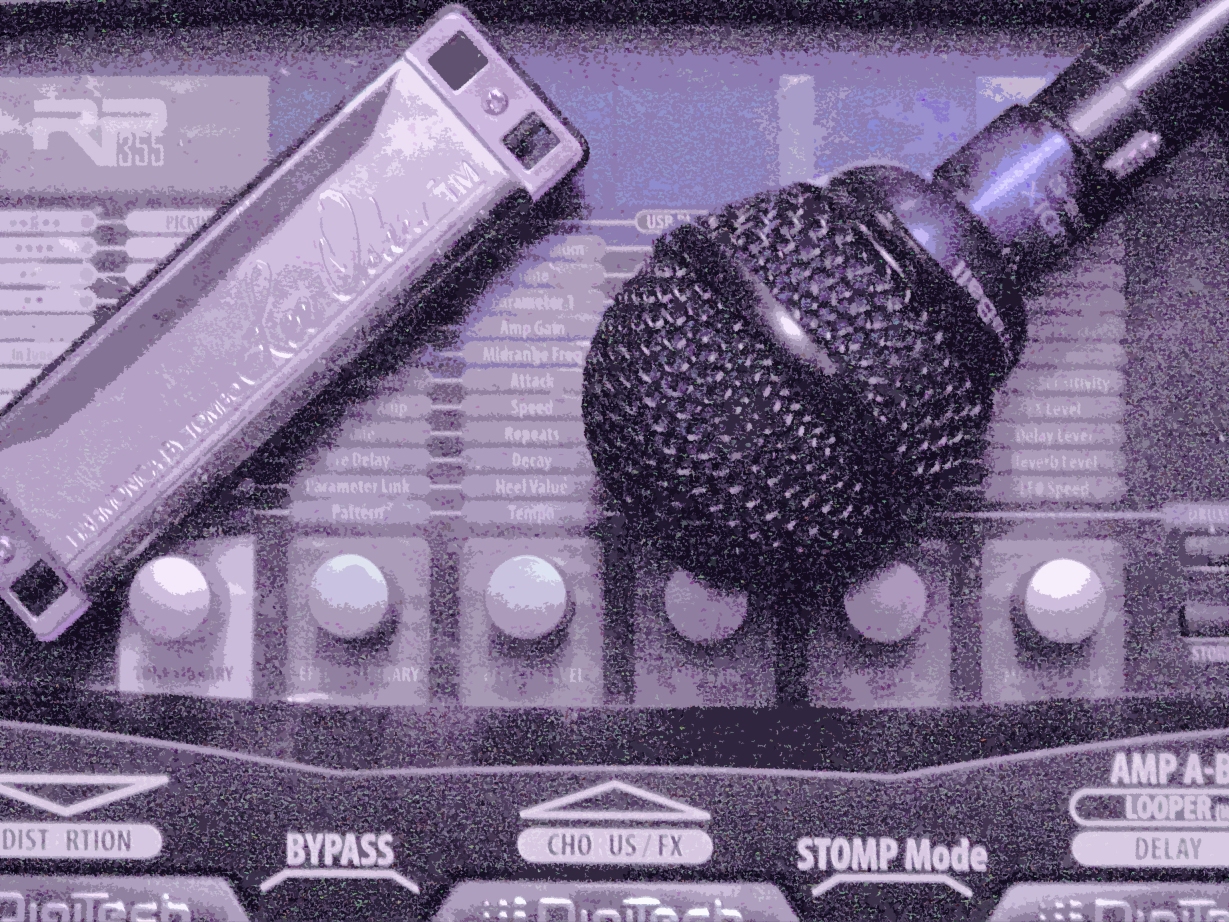
What Keeps Me Listening
I hang out on a couple of harmonica Internet mailing lists. And every once in a while someone writes in to say that some traditional recording or other represents the best that anyone could do, ever.
Maybe comments like that are just an appreciation of the greatness of the music. But often it’s framed in terms that make it seem like everything that followed that recording is inferior. If that’s the case, then the argument essentially boils down to “there’s no point in trying anything new, because the best has already been done.”
If that’s true, why should anyone improve the instruments? Why improve the gear? Why try and apply different techniques? For that matter, why should any of us bother to play the instrument ourselves? In other words, why not just take some performance at an arbitrary point in time as the standard for everything forever, and stop trying to do anything different? I mean, if a style developed in the 1950s is the best a harp player can hope for, what’s the point of doing anything else?
When I was in college, I was amazed to hear a pianist tell me that as far as he was concerned all music after Bach was a waste of time. But audiences and musicians change over time in taste and sophistication. Stevie Ray Vaughn does not sound the same as Hubert Sumlin. And why should he? They played for different audiences in very different eras, not to mention that they were very different people. As John Mehegan wrote in his classic work “Jazz Piano”, it’s pointless to compare Louis Armstrong to Charlie Parker and claim that one should have adopted the conventions of the other, not least because Parker would have sounded completely incomprehensible, emotionally and technically, to an audience in Chicago in 1927. But Parker, like Armstrong, changed the way people heard music forever. And he did it by expressing his own ideas, not someone else’s.
I love lots of different music, from Beethoven to Little Walter to Hendrix to Levy to… you name it. Evaluating any of these musicians in terms of the others is a waste of time and insulting to the musicians involved. The most important thing ANY of us can do, for ourselves and our world, musically or othrerwise, is to express who we are, not repeat somebody else’s ideas. I don’t have to reject everything that came after 1970 to make the great blues masters look great. They ARE great. They’re just not the only version of great out there, nor the last. And they’re definitely not me, and I’m definitely not them.
I’ll be proud if people say I made great music after I’m gone (or even while I’m still around, if anyone is so inclined). But it’s a waste of my time, and an insult to everything the traditional masters stand for, for me to spend my days and nights trying to do what they did. The great blues masters, one and all, say that the most important thing for you to play is what’s
inside you. So how can anyone say that the best thing a harmonica player can do is emulate someone else, whether it’s James Cotton, Little Walter, or a modern master like Brendan Power? They’re all great, and we can learn from all of them. And then we can go our own ways.
My way has involved creating a repertoire of original solo compositions for acoustic harmonica, and then swinging to the opposite pole by exploring what electronics can do with the instrument. Maybe it’s great, maybe not. Whether or not it’s great, I know it’s not the end-all and be-all. And THAT’s great, because it means that somebody else, somewhere, sometime, gets the chance to do something great on their own terms.
And that’s what keeps me listening.
Related Posts
3 Comments
Leave a Reply
You must be logged in to post a comment.
WHAT’S NEW
Categories
- Audio/Video
- Blog
- Blue Future
- Digitech RP Tricks and Tips
- Discography, CDs, Projects, Info, Notes
- Featured Video
- For the Beginner
- Gallery
- Hunter's Effects
- Hunter's Music
- Huntersounds for Fender Mustang
- Meet the Pros
- More Video
- MPH: Maw/Preston/Hunter
- My Three Big Contributions
- Player's Resources
- Pro Tips & Techniques
- Recommended Artists & Recordings
- Recommended Gear
- Recorded Performances
- Reviews, Interviews, Testimonials
- The Lucky One
- Uncategorized
- Upcoming Performances
- Zoom G3 Tips and Tricks

Your music is great BTW, especially your solo work.
Thanks! I wasn’t trolling for compliments…
Richard, I totally agree with your thoughts on the subject of greatness and the need to find your own way, whether you are a music fan or a musician. Best regards from Poland!